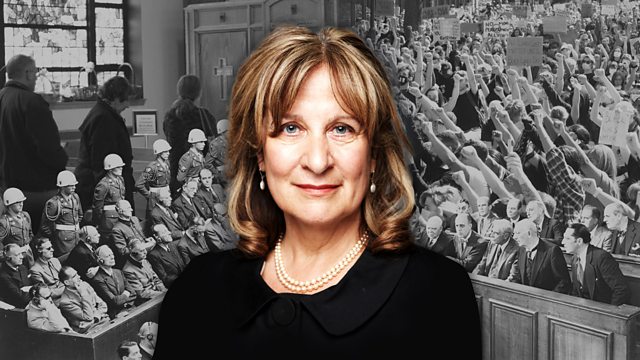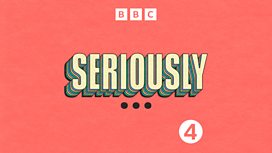Anatomy of Guilt
Helena Kennedy QC explores guilt as a legal, psychological and political idea. Is there such a thing as collective guilt, by which a whole community or even country may be judged?
What is guilt - is it a legal verdict, a state of mind or a moral idea? Why do we feel guilty? And is there such a thing as collective guilt, by which a whole community or even country may be judged?
A criminal barrister but also grown up a Catholic, Helena Kennedy QC cross-examines the notion of guilt from a range of perspectives - legal, psychological and political.
Guilt is both a public judgement and a private emotion, both legal and psychological. Itβs also highly political. Following recent Black Lives Matter insurgency across the UK the question of collective guilt - historical guilt - is animating debates around Britainβs colonial past and demands for reparations. The example of Germany and the trials at Nuremberg following the Second World War are a model of how law has confronted, and struggled with, ideas of collective guilt. Today there is strong moral disagreement around how far back in time shared responsibility for historic crimes should extend - ββ¦the guilt remains, more deeply rooted, more securely lodged, than the oldest of old treesβ the Black American author James Baldwin wrote of slavery and its continuing impact, β..history is present in all that we doβ.
Jewish guilt, Catholic guilt, guilt as a state of inner conflict. In psychoanalysis, it divides the self even as it creates a shared bond with others. On an everyday level most of us reflect on feelings of guilt - not keeping a promise, not telling the truth, failing in our obligations. Where do those feelings of moral guilt, indeed of conscience, come from? And has our understanding of guilt really changed over time?
With her own experience as a criminal barrister and hearing from a range of contributors, Helena takes the legal notion of guilt as a verdict and ventures outwards drawing on religious ideas, psychoanalytic insight, political grievance and the meaning of historic justice.
Contributors include the author Howard Jacobsen, psychoanalyst and writer Adam Phillips, curator Aliyah Hasinah, international lawyer Philippe Sands, legal scholar and barrister Conor Gearty, author Svenja OβDonnell, barrister Ulele Burnham, writer and journalist Rhik Samadder and moral philosopher Michael Sandel.
Producer: Simon Hollis
A Brook Lapping production for ΒιΆΉΤΌΕΔ Radio 4
Last on
![]()
³§±π°ωΎ±΄Η³ά²υ±τ²ββ¦
A rich selection of documentaries aimed at relentlessly curious minds.
Broadcasts
- Tue 1 Sep 2020 16:00ΒιΆΉΤΌΕΔ Radio 4
- Thu 1 Oct 2020 20:30ΒιΆΉΤΌΕΔ Radio 4


